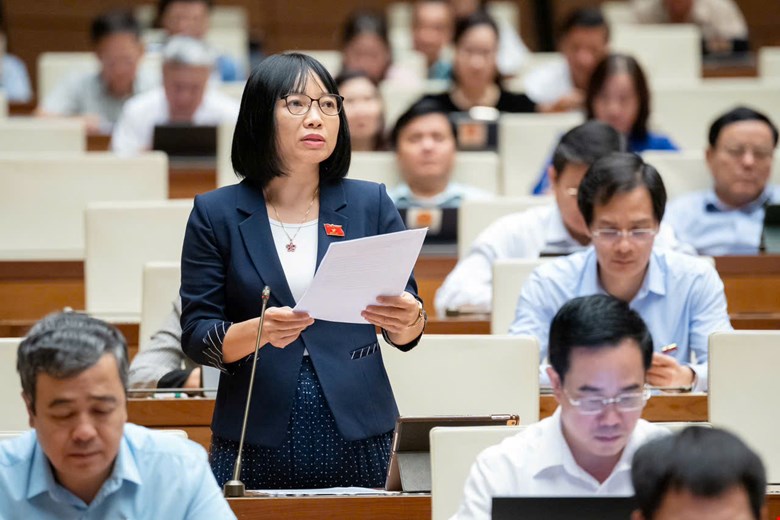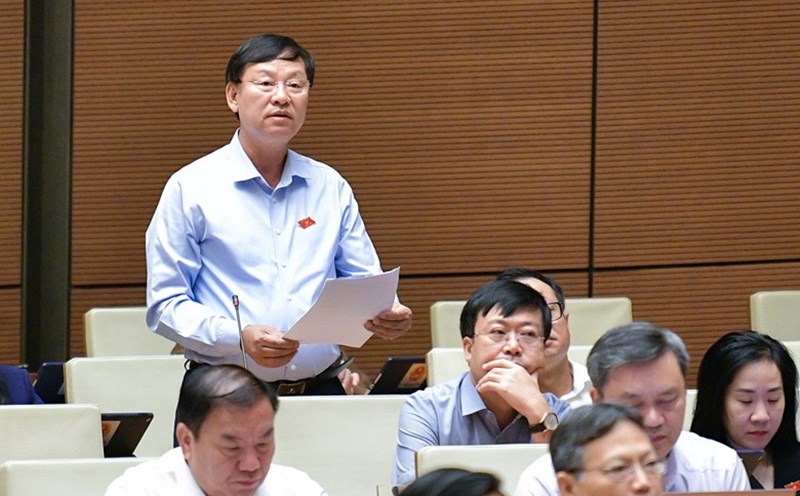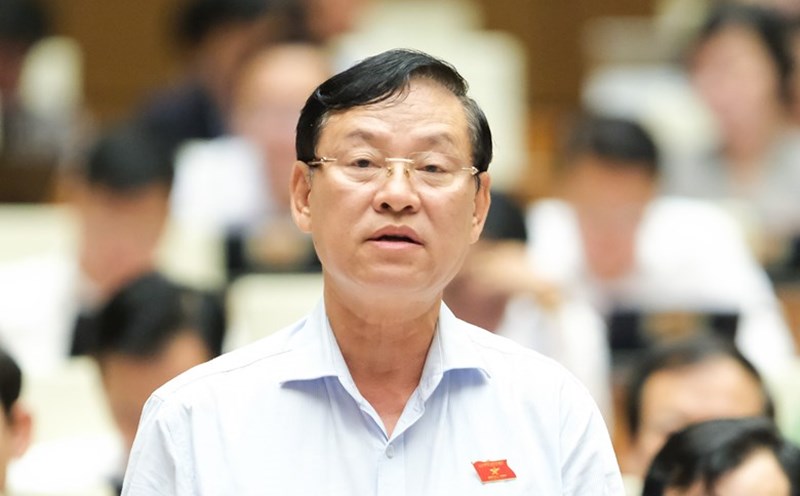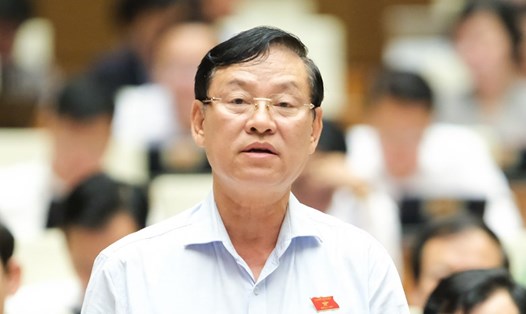On the morning of November 9, the National Assembly discussed in the hall the draft Resolution on piloting the handling of evidence and assets during the investigation, prosecution and trial of a number of criminal cases.
Delegate Tran Khanh Thu (Thai Binh Delegation) said that the draft resolution only regulates the pilot handling of evidence and seized assets that are temporarily detained, seized, or frozen in a number of criminal cases and cases under the supervision and direction of the Central Steering Committee on Anti-Corruption, Wastefulness, and Negativity.
Delegates said that this provision is not comprehensive because in reality, most crimes are related to evidence, money, and property. For example, a case of smuggling medical equipment has a large value, even hundreds of billions of VND, but there is no mechanism to handle it until it goes to court.
According to the delegate, smuggling of assets will be confiscated, why don't we have a mechanism to handle it from the beginning?
Delegates cited facts such as the case at Bach Mai Hospital, which essentially involved violations in joint ventures, partnerships, bidding activities, and machinery systems that were not guilty at all.
In fact, this is a very modern equipment system and is valuable in diagnosis, treatment and reducing the risk of complications for patients, very good treatment.
But when an incident occurs, the entire system stops, and with electronic equipment that has not been working for 1-2 years, it will certainly be affected and unusable, patients will not have modern treatment equipment and this is a huge waste.
From there, delegates proposed regulations in the direction of allowing piloting in serious and especially serious crimes according to the provisions of the Criminal Procedure Code.
With the regulation allowing the purchase, sale and transfer of property evidence through public auction, delegates proposed to define more clearly the criteria and conditions for applying measures to deposit money to get back property and to allow the purchase, sale and transfer of property.

Commenting on this content, delegate Nguyen Thi Viet Nga (Hai Duong delegation) emphasized that the issuance of the resolution is necessary to remove difficulties and obstacles in resolving economic, corruption and position-related crimes, because the amount of assets and evidence seized, temporarily detained, attached and frozen is very large, the litigation time lasts for many years and the attached and seized assets are not exploited, causing damage and loss.
Delegates agreed to pilot implementation, then conduct a summary and evaluation before amending the law.
The delegate also suggested that after the pilot period ends, if it is found effective, it can be expanded to other cases, not just applied to cases under the supervision and direction of the Steering Committee.
One of the proposed pilot measures is to return money to the victim or deposit it in a bank pending processing. This includes a provision that the money be deposited into a commercial account of the prosecuting agency opened at a domestic commercial bank in which the State holds more than 50% of the charter capital.
Delegates said that such regulations are inappropriate, creating unfairness between regular commercial banks and state-owned commercial banks.
The draft resolution also stipulates measures to hand over evidence to the owner or legal manager for management, exploitation and use. However, delegates are concerned that it has not yet addressed the case of assets and evidence being depleted, damaged, losing their original value or being lost.
According to the delegate, in that case, what is the responsibility of the organization or individual assigned to manage, exploit, and use the project, and how is it handled? Therefore, it is recommended to consider and supplement this content in the draft resolution.









